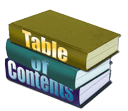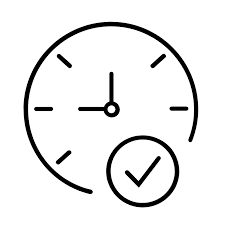
23.1 Knowing and love are inseparable. When this is realized, it is obvious that love is the only true wisdom, the only true understanding, the only true knowing. Love is the great teacher. And your loving relationships the means of learning love.
23.2 The lessons learned from love will go a long way in assuaging your remaining fears about the loss of your individuality that you believe will accompany the loss of your separated self. For, as each of you has found as you have loved another, the more you love and long to possess a loved one, the more you realize that your loved one cannot be possessed. While in a love relationship the greatest knowing is sought and, with willing partners, attained; one’s partner in such a relationship still transcends complete knowing. The relationship becomes the known. While it is your nature to seek for more, it is also the nature of life to exist in relationship and to become known through relationship. This is how knowing comes to be. Knowing through relationship is not a “second best” situation. It is how life is. It is how love is.
23.3 Thus, while your partner in love transcends total knowing, this too is “how it is.” How it is meant to be. Love inviolate. Each of you is love inviolate. Yet relationally, you may be able to “read each other’s thoughts,” be cognizant of the slightest switch in mood, finish each other’s sentences. You know the other would lay down his or her life for you, rise to any occasion of your need, share your every fear and joy.
23.4 Non-partnered love also shares a knowing through relationship. The loved one may be on the other side of the country, separated by distance, or previous choices, or past hurts, and yet a relationship continues.
23.5 In both partnered and non-partnered love relationships, the one you come to know, the only one who does not transcend total knowing, is your Self.
23.6 The same is true of your relationship with God. As in any love relationship, the desire to know God can be all consuming. Yet, while God transcends knowing, your relationship with God is how you know both God and your Self.
23.7 Let me remind you of a key learning aid discussed some pages back: You would not be other than you are. No matter how much you grow to love another, that love does not cause you to want to be the other person. That love causes you to want to have a relationship with the other person. This should tell you something about the nature of love.
23.8 When obsessively in love you may want the other person to be you, but rarely the other way around. This is what has caused you to make God over in your own image and to try to do the same to others. This comes of seeing oneself as room. This is not relationship. When you are tempted to think of relationship having to do with physical proximity, think of this example. Now imagine communities of faith. Around the world, people are united in belief, and not only in religious beliefs. Ideology, politics, profession unite people. “Parties” and “associations” are formed to foster the idea of unity through shared belief. They are not necessary, as is seen by the reality that they only form after the fact. The belief fosters the form and the form is then meant to foster the belief.
23.9 What you long for is re-union. Yet reunion too is relationship, because union is relationship. Imagine a crowd of people in a small room. This is not relationship. When you are tempted to think of relationship having to do with physical proximity, think of this example. Now imagine communities of faith. Around the world, people are united in belief, and not only in religious beliefs. Ideology, politics, profession unite people. “Parties” and “associations” are formed to foster the idea of unity through shared belief. They are not necessary, as is seen by the reality that they only form after the fact. The belief fosters the form and the form is then meant to foster the belief.
23.10 This is true of the body as well. Think of the way in which the word body is used and this will be clear. The body politic. A body of knowledge. Belief fostered the form and the form was meant to foster the belief. Thus belief and form have a symbiotic relationship. Understanding of this loving relationship can help you to experience freedom of the body, which is an extension, in form, of your belief in the personal “I.”
23.11 Belief fosters union. Union does not foster belief, because in unity belief is no longer required. Belief fostered the union of atoms and cells into the form required by the belief in the separated self. Belief of another kind can foster the creation of form of another kind.
23.12 If form is an extension of belief you can see why what you believe is critical to how you live with form. We are speaking here of ways of thinking similar to those which you term induction and deduction. In the past, exercises have most often begun with an alteration of beliefs regarding form. Here we have taken an opposite approach, beginning with exercises to alter your belief in your identity and concluding with exercises to alter your belief in form. This is consistent with our primary focus on learning from the heart. The mind goes from the small to the large, the heart from the large to the small. Only the wholehearted see the connection of all.
23.13 I repeat: Belief of another kind can foster the creation of form of another kind. A wholehearted belief in the truth about your Self is what is required to cause this to be so. It is what is necessary now. It will change the world.
23.14 Belief of another kind is what miracles are all about. It is what you are all about as a miracle worker. For you to change your beliefs is the miracle that we are after, the result we seek from this Course.
23.15 Obviously, your belief in who and what you are is the basis for your entire foundation, a foundation previously built on fear. Clearly, belief in the body was easily translated into a belief in the validity of fear. When you are free of this misperception, this inaccurate belief, your body will be freed. It will no longer be an object of use but a means of service.
23.16 Freeing your perception from your nearly immutable belief in form will allow for all changes in form required by the miracle. Form is not a constant but a result. While you believe that belief is the result of form, it is not. Form is the result of belief. Thus belief is not only capable of changing form but also is necessary in order to do so.
23.17 History has shown you that what you believe is possible becomes possible. Science has proven the link between researcher and research findings. Still you find it difficult to believe that what is possible depends upon what you can imagine being possible. You must cease to see the difficulty and begin to see the ease with which what you can imagine becomes reality.
23.18 You have no capabilities that do not serve you, because they were created to serve you. The ability to imagine is such a capability, freely and equally given to all. Imagination is linked to true vision, for it exercises the combined capabilities of mind and heart. It is akin to perception, and can lead the way in changing how you perceive of yourself and the world around you.
23.19 Beyond imagination is the spark that allows you to conceive of what never was conceived of before. This spark is inspiration, the infusion of spirit. Taking the creation of form backward, it leads to this conclusion: Spirit precedes inspiration, inspiration precedes imagination, imagination precedes belief, and belief precedes form.
23.20 Spirit is your more direct link with the one Source. Spirit is directly from the Source, while form is a by-product of spirit. Thus form is once removed, or further away from the Source. Again working backward, however, the form you have created is still a step necessary in the return to the Source. The necessary step is that of moving beyond form—recognizing and acknowledging form for what it is and then continuing on, working backward to change your belief, to allow imagination to serve you and spirit to fill you.
23.21 You then can move forward again, taking form beyond its given parameters and becoming a miracle worker.
23.22 The body encompasses or holds the belief. It is the composite of your beliefs, the totality. It will continue to hold former beliefs as well as new beliefs until old beliefs are purged. The purging of old beliefs frees space for the new. It allows your form to reflect what and who you are now in terms that coincide with the “you” whom you have always been.
23.23 There is no quick route to this purging, as it is the most individual of accomplishments. As you learned your beliefs, you must unlearn your beliefs. As you begin the process of unlearning you may feel tested. You are not being tested but given opportunities for unlearning. To learn that a previously held belief is no longer valid is the only way to truly purge that belief.
23.24 These learning opportunities call for a period of engagement with life. Many of you will have begun to experience unlearning opportunities even while your study of this Course may have led you to turn inward and attempt to disengage from life. A period of engagement with life cannot be avoided, however, and your attempts to avoid it will only cause an increase in feelings generated by experiences of duality. While you hold conflicting beliefs within you, you will be conflicted and affected by polarity. Unlearning allows you to purge old beliefs so that only one set of beliefs is operative within you. This is the only route to the certainty you seek, and leads to true conviction. True conviction cannot be attained without this experience of unlearning and purging.
23.25 All unlearning opportunities are opportunities for miracle readiness. There is no trick to identifying unlearning opportunities. From this point forward, I assure you, all experiences will be thus until unlearning is no longer needed. If you will remember that the one exercise for your mind is dedicating all thought to union, you will keep your mind engaged and less resistant to unlearning. When you feel resistance—and of course your mind will resist unlearning what it has striven to learn—return your dedication to union. Acknowledge your mind’s resistance as a sign that unlearning is going on. Acknowledge it but do not engage it.
23.26 What will happen when you look at each situation as a challenge to your beliefs? If you do not remember that you are involved in a process of unlearning that will lead to the conviction you have so long sought, you will indeed feel tested and will try to take control of the learning situation. Not taking control, however, is the key to unlearning. What you term as being in control is simply another way of saying acting on old beliefs. As long as you attempt to remain in control, old beliefs will not be purged.
23.27 Attempting to exert control over learning situations is a reflection of belief that you have nothing to learn. An attitude of openness is required for unlearning and new learning both. Control opposes openness. Mastery comes through the process of both unlearning and learning anew. This is but another way of stating that which was stated in A Course in Miracles: Resign as your own teacher. The desire to control is the desire to remain your own teacher and/or to choose your teachers and learning situations. Neither can occur if you would truly choose to change your beliefs and move on to the new or the truth.
23.28 Looked at in another way, this process has much in common with forgiveness. The action associated with it raises it to a level similar to that of atonement. It is an undoing accompanied by a new means of doing. In the process of unlearning, both forgiveness and atonement occur. You recognize that your false beliefs were the result of faulty learning. As unlearning is replaced by new learning, judgment falls away as your innocence is established. Can a child be found guilty when the child has not yet learned that which is needed for right action?
23.29 You might ask, how do you learn what you have failed to learn previously? What are the lessons? What is the curriculum? How will you know when you have achieved a learning objective? Yet how can you become a master of what another would teach? Of lessons another would select? Your life must become your teacher, and you its devoted pupil. Here is a curriculum designed specifically for you, a curriculum only you can master. Only your own life experiences have led to the learning you have accumulated and translated into beliefs. Only your own life experiences will reverse the process.


Enter your search and press enter to begin.

Thank you for supporting the Library!!
The recording has finished and data collected. Please fill the form below and press 'Submit' to send us the timing data you captured.
Timing data exists for this session. Please confirm that you want to modify the existing timing.

Select recipients from the dropdown list and/or enter email addresses in the field below.